Where they take adventure seriously - an insider's guide to the coolest spots in Berlin - How to Eurail around Germany - and the World Nomads Travel Writing Scholarship is open, get details now!
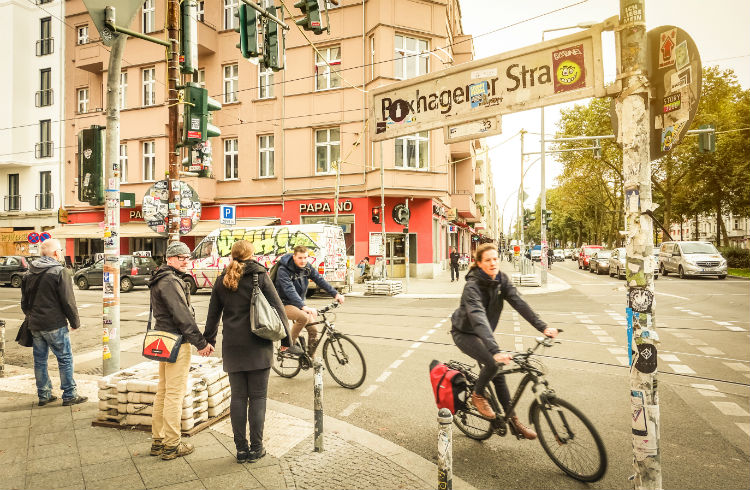 Photo © World Nomads
Photo © World Nomads
Listen Now
Episode 8: Germany
Germany, after the US, is the second most popular immigration destination and the most popular in the world for ex-pats. Germany is also a world power with a strong economy, a high standard of living with social security and universal health care, plus you don’t pay college fees.
Great! All that aside, what’s it like to explore as a traveller?
What’s in the Episode:
01:02 Intro
02:20 Phil’s Quiz Question
03:01 Nomadic Matt New York Times, best-selling Author of “How to Travel the World on $50 a Day”, shares his Top 5 places to visit in Germany.
07:15 Annika Burgess AKA Arnie – a former Sydney Radio Producer who headed overseas to work and has ended up spending the last seven year in Berlin.
“It was kinda circumstantial and then, yeah, got a bar job and continued doing exactly what I had planned, traveling around whilst working bar, making a bit of money. Then seven years later, I'm still there.” - Arnie
14:12 When world nomads travel with instruments…
15:53 Traveling through Germany with Eurail.
“You've got 47,000 kilometres of railway track, not only just covering Germany, but connecting it to all the other countries around it. You could start off in Berlin and Munich, come all the way across the country to Dusseldorf.”
21:01 Serious or not.
“I guess it could be true, in that we are serious. I think it has to do with our past and that a lot has happened in the past.” - Stefan Schuler
22:10 Travel News – Why we should be visit ****hole Zambia.
31:12 Freddy from ITB on those off the beaten track places to visit in Germany.
“…when I tell people to go to the North Sea, people from Australia, for example, they say, oh my God it must be cold. But it's not. You have also hot summers. It's rough sometimes. You have waves and dunes and so I love the North Sea.” - Freddy
36: 00 The World Nomads Travel Writing scholarship has been launched.
42:35 What’s next in Episode 10
Who’s on The Show:
Frederique is from ITB the world’s leading travel trade show is also a West Berliner and shares some of the lesser known places to explore in Germany.
Nomadic Matt is a blogger who left behind his office job to travel the world and just happens to be New York Times, best-selling Author of “How to Travel the World on $50 a Day
Maz Hussain and Stefan Schuler from Eurail.
Annika Burgess, a former Sydney radio producer living and working in Berlin.
Parinaz Bilimoria World Nomads Program Marketing Manager
Resources & Links
Win a writing scholarship to Argentina with World Nomads.
Should you boycott Myanmar on ethical grounds? Read the World Nomads take on this dilema.
Scholarships Newsletter: Sign up for scholarships news and see what opportunities are live here.
Follow World Nomads on Instagram for the latest stories, and #WorldNomads for your chance to be featured.
Here's Kim recording Summer Friends and their impromptu performance for World Nomads.
Share Episodes with Your Audience
Want to share an episode you loved, or you were a guest? Do it with this Player Embed code.
<iframe width="100%" height="200" src="https://player.whooshkaa.com/player/episode/id/174060?visual=true&sharing=true" frameborder="0" style="width: 100%; height: 200px"></iframe>
Want to Talk to us?
We want to hear from you! If you have any travel insurance questions to Ask Phil, want to give us feedback on the episode, or have suggestions for topics you'd like us to cover, email us at podcast@worldnomads.com
Sign up for Podcast news in the newsletter box on the right-hand side.
About World Nomads & The Podcast
Explore your boundaries and discover your next adventure with The World Nomads Podcast. Hosted by Podcast Producer Kim Napier and World Nomads Phil Sylvester, each episode will take you around the world with insights into destinations from travellers and experts. They’ll share the latest in travel news, answer your travel questions and fill you in on what World Nomads is up to, including the latest scholarships and guides.
World Nomads is a fast-growing online travel company that provides inspiration, advice, safety tips and specialized travel insurance for independent, volunteer and student travelers traveling and studying most anywhere in the world. Our online global travel insurance covers travelers from more than 135 countries and allows you to buy and claim online, 24/7, even while already traveling.
The World Nomads Podcast is not your usual travel Podcast. It’s everything for the adventurous, independent traveller. Don’t miss out. Subscribe today.
Speaker 1: The World Nomads Podcast, it's not your usual travel podcast, it's everything for the adventurers, independent traveler.
Kim: Well, welcome again to our podcast, delivered by World Nomads, the travel lifestyle and insurance brand, covering more than half a million travelers. It is nice to be with you, I'm Kim.
Phil: I'm Phil. In this episode, we're exploring Germany.
Kim: One of my favourite countries, Germany, after the US, is the second most popular immigration destination, and the most popular in the world for expats. We'll actually [00:00:30] catch up in this episode with an Aussie living and working in Berlin, in fact a mate of Phil's, to find out what it's like.
Phil: Yep. Germany, as we know, is also a world power with a very strong economy, it's a global leader in several industrial and tech sectors, and the world's largest exporter and importer of goods, with cars topping the list of exports. It also has a very high standard of living, with social security and universal healthcare. Free healthcare, imagine that, plus you don't pay college fees.
Kim: How good is that?
Phil: That's [00:01:00] all right, I care about the economy stuff, I want to know about traveling today, Kim?
Kim: Yeah, exactly, okay. Well, we'll chat with [Mez and Steffen 00:01:05] from Eurail, they're a provider of rail passes for the entire European continent. We'll touch a little on that, however we chat specifically about traveling by rail in Germany, and those must-see places. Then there's Freddy from ITB, who I thought was a man, when I was ... Thanks, mate.
Phil: You've made that mistake often, though.
Kim: Yes, I have, but it's short for Frederick, and she's a beautiful west Berliner, she works for ITB, the leading travel [00:01:30] trade show in the world, in fact it is the biggest in the world, and talks about the popularity of Germany and some places you wouldn't have thought of visiting. Nomadic Matt, he's a blogger, he's a blogger of quite some note and an author, who gave up his full-time job to travel the world. In the podcast series for World Nomads, we're meeting so many individuals and families who do this, and it's so inspiring and so brave, but they do it, and they all make money from it.
Phil: Yeah, and the great thing about Matt is he's the one that's inspired so many people, he's like the guru of this. He's [00:02:00] amazing, the content that he has on his site that really teaches people how they can do the same thing, it's fantastic, he's a great bloke.
Kim: Well, he'll share his top five places to visit and his thoughts on Germans, which Steffen from Eurail will later respond to. In each World Nomads podcast, we kick off with Phil's quiz question.
Phil: The quiz question this week; do you want me to clear my throat again?
Kim: Yeah, when we were doing a practice, Phil cleared his throat. Are you going to let that go?
Phil: So, professional. There we go. The quiz [00:02:30] question this week, and if you're a regular movie guy, you can probably guess the answer to this one. The Australian airline Qantas has released a list of its most watched inflight movie of 2017. Do you know what the movie was?
Kim: We'll find out in the episode but they have blockbusters, don't they?
Phil: They do, they do and if you have been able to watch the Academy Awards and things like that you might have an idea about one that's in the top three but I think you'll be surprised by the number one most watched movie on Qantas.
Kim: Nomadic Matt is the New York [00:03:00] Times' Best Selling Author of How to Travel the World on $50 Dollars a Day, and as you mentioned, a lot of people have accessed his advice for traveling cheaper, longer, and better, in fact, over one million. We'll share his site in our show notes, but I kicked off this conversation keen to know how this guy who just works so hard finishing his MBA just one day quit his office job and hit the road.
Matt: Coincidentally, I became Nomadic Matt while I was in Thailand. I say coincidentally because [00:03:30] I'm here right now. I was on a two-week trip with my buddy Scott and I met some backpackers. I was enamoured by their lifestyle and their ability to be the master of their destiny, captain of their ship. And so, being the impulsive Gemini that I am, I decided then and there to quit my job, finish my Master's, and travel the world for a year. [00:04:00] I just never stopped. My book, How to Travel the World on $50 Dollars a Day, just come out in a third edition a couple months ago so it's super up-to-date and worth the read. You can always find me on any social channel @NomadicMatt.
Kim: Well, this podcast is about Germany, so let's pick your brains on Germany. For those listening, where would you suggest people visit?
Matt: Well, I'm going to say Berlin. I know everyone will say Berlin, but I'm going to say [00:04:30] Berlin because I originally really disliked Berlin. There was something seedy that I just didn't like when I first went there. I loved Munich so much more, but over the years and subsequent visits I've really gotten to appreciate Berlin as just a very vibrant, entrepreneurial, already ... city. It's a place on the move. It's a mix of cultures, there's a lot [00:05:00] going on there and I've grown to appreciate that a lot more in the last few years.
I really like Hanover. It's a small, little town in central Germany. Not much there, a couple of parks and a canal and really not much, but it's nice and peaceful. Not a lot of tourists go there so it's an overlooked destination. The Black Forest has some major hiking. What I really love about Germany, [00:05:30] it's middle of Europe and there's just so much there. There's so much history, geography. There's so much I love, but I would have to say if I had to pick, say, a top five it would be Berlin, Munich, Black Forest, Hanover, and the beach coasts up on the sea.
Kim: It's very cool. Well, you've given us your top five [00:06:00] spots. What are some tips and advice for travelers that are heading to Germany?
Matt: I think one thing to remember is that sometimes the Germans can come off as cold in the sense that the Germans are like a lot of Europeans, are not like everyone should talk to strangers like an Italian would or someone from Thailand or India or many other [00:06:30] places in the world. I think a lot of people get shocked by the German efficient mentality, but I like it because I'm used to grew up in New England and Boston where we kind of had that same like "We're on the move, don't talk to me" culture, but don't take German seriousness as unfriendliness.
Kim: Thank you, Matt. We will touch on that perceived German seriousness [00:07:00] with Steffen from Eurail shortly, who is German and therefore, very qualified to share his thoughts. As I mentioned before we caught up with Nomadic Matt, we'll have a link to his page in our show notes. Very, very thorough page and worth going over.
Phil: The elephant in the room when you talk about Germany is Berlin. It is now and always has been the kind of honey pot for adventurers, young people interested in art and culture. Even in Germany's darkest days post-World War II, Berlin despite being divided down the middle remained a center for thought, [00:07:30] experiment, and culture. Now, Germany's again the powerhouse economy of Europe, the country's reunited and a new prosperity reigns. So, what is it about Berlin? Who doesn't want to go there and experience life there? Our next guest has done just that, Annie Burgess and I worked together at a talk radio program a few years back. I came to World Nomads, she went to Berlin! Welcome to the podcast, Annie!
Annie: Hi, Phil!
Kim: Who got the short straw?
Phil: Yeah. It's so weird because [00:08:00] we worked in radio and now here we are sitting on the other side of the microphone.
Kim: Yeah.
Phil: Instead of behind the glass, yelling at the people in here.
Annie: It feels weird, actually-
Kim: To be the talent?
Annie: Yeah.
Phil: Why did you go to Berlin? Why did you pick it?
Annie: Look, I left Australia in 2010. I'd always wanted to travel, so I saved some money and did the whole going around Europe thing. Initially thought that I'd want to settle in London. I mean I just wanted to base myself somewhere to keep on traveling so not do the jump in and out of cities, but actually live [00:08:30] somewhere so I could take it slow. Getting a visa in England wasn't so easy for the U.K. and, actually, I had a few friends in Berlin and I had visited there, really enjoyed it, and getting a visa was much easier.
Phil: Right.
Annie: It was kind of circumstantial and then got a bar job and continued doing exactly what I had planned. Traveling around while [inaudible 00:08:53] bar, making a bit of money, and then seven years later I'm still there.
Kim: And why wouldn't you be? Berlin. I just [00:09:00] fell in love with it when I went there. The [inaudible 00:09:03] side of it in particular. I think it's got more museums and more of those cultural things.
Phil: Yeah.
Kim: Then most other cities in the world.
Phil: And that's the thing because you worked there in the arts field there, is that right?
Annie: Yeah, I'm working for a design studio. I started off as a freelance journalist and, actually, I was writing for an English publication there doing their theater writings.
Kim: Yeah.
Annie: So, going to a lot of shows. I mean, the dance scene, theater dance…
Phil: Yeah.
Annie: -is fantastic. Some of the [00:09:30] best up and coming choreographers in Europe, around the world, will flock there because there's great funding. There's so many spaces.
Kim: Yeah.
Annie: It's not just museums, it's theaters, there's opportunity, and it's cheap to do this stuff.
Kim: Yeah.
Annie: I mean a lot of artists this is why they go there because they can afford to explore and make new shows and content without the money woes.
Phil: Yeah. So, when you first went there to go and visit your friends, what were your first impressions?
Annie: You could do whatever you wanted.
Phil: [00:10:00] Book me a ticket now!
Annie: Zero rules and regulations.
Phil: Is that right?
Annie: Yeah, it's just relaxed. If you want to stay out drinking in a park until the sun goes down and hang out with mates, you can without feeling like you're restricted. There's a lot more opportunity and a lot more vibrancy. Everything's different, you know?
Kim: Yeah.
Annie: I find, I hate making the comparisons, but you find a lot of the bars and stuff in [00:10:30] Sydney are all very similar, but there you can just find your place if you like this kind of music or that kind of music or you find your little tribe, which is one thing that really stands out, the diversity. For sure.
Phil: Look, there's two sides to every city. There's the one that's on show to the tourist when they turn up and then there's one that everybody lives in alright. Talk about, once you're seen the Brandenburg Gate and Checkpoint Charlie, what do you do [00:11:00] next? What would you ... if somebody came to visit you, what would you go and do to help them get under the skin and really understand the place?
Annie: You have to get a bike and you would like that, Phil.
Phil: Yup. Totally.
Annie: It's very, very bike friendly. We cycle everywhere and there's cycle paths, you put your own little traffic lights, so you just have to get on a bike and explore. There's a lot of fantastic parks, open spaces. I live right near Tempelhofer Feld, which is an old airport that's no longer in use and it's such [00:11:30] an incredible space. It's just this big, open expansion. They tried to build on there and [inaudible 00:11:35] petitioned against it because people are just using that space for everything.
Kim: Wow.
Annie: It's going down the runway on these windsurf skateboard things-
Phil: Alright.
Annie: -there's communal gardens and places where talk little barbecues and grill. Yeah, just riding your bike along that runway or pass there is such a great atmosphere so it's this sort of stuff. Get on your bike and actually see the city.
Phil: So, [00:12:00] if somebody goes, "I'm definitely going to go to Berlin and I'm going to check it out." Couple days, couple weeks? What do you think?
Annie: Ooh, couple of years.
Phil: Couple of years.
Annie: It depends if you're into the whole nightlife thing cause obviously there's that, a lot of that. If you're going out at night and sleeping in during the day then you might want to give yourself a couple of weeks so you can balance it out. Yeah, I was saying to myself, "Do I want to bring up the whole Berlin nightlife thing?" [00:12:30] because I was a bit apprehensive even initially when you asked me to do the podcast. I was like, "If I was listening to someone do a podcast about Berlin, I'd be rolling my eyes the whole time."
Kim: Really? Why?
Annie: It's the whole like, the cool side of things, but I mean you have to do it.
Phil: Come on, spill the beans. Come on. Tell us about the nightlife, come on.
Annie: I mean like I was saying, zero rules and regulations. You can find your place and be out all night and it's like a playground.
Phil: Do you think you'll ever come home? I mean, you're on a visa, [00:13:00] you'll probably going to have to do, but do you want to come home?
Annie: Yes, it crosses my mind a lot, actually. Seven years is a long time to live abroad, but I'm really glad I've had that experience. I think everyone should really do it. The main thing I find, actually, from living in Berlin isn't even necessarily about what you're doing, it's just seeing that there are other sides to life that you live. You don't have to own a property, you don't have to be married by a certain age. You don't have these expectations on you and you can really [00:13:30] explore yourself and explore what you want to do with your life without society telling you how to live.
Kim: Okay, well that was our chat with Annie who, by the way, happens to be super cool. Is there a way and I'm guessing email's probably best, can you just ask her where she got that jumpsuit she wore?
Phil: I know.
Kim: She's very cool. She looks very Berlin.
Phil: She does. She's quite tall as well and very good looking and she can get away with a pantsuit, like I can't.
Kim: And Phil, I did think you lingered a [00:14:00] little long on the hug. Jokes!
Phil: We went through a lot together in that environment.
Kim: It is at this point in our podcast we catch up with our World Nomads. This time it's a little bit different. I live in an area where there are a lot of travelers and it's really cool to watch. They bring their games, their dance moves, and their music along with them, literally, in their backpacks. They don't borrow this stuff, they bring it with them.
Phil: Bring it with them?
Kim: I came across a group of Brazilian guys who'd brought their ukuleles, this is serious, drums and tambourines on tour with [00:14:30] them. They weren't on tour as a band, they were traveling, but I got an impromptu performance.
You're at the beach with a ukulele.
Speaker 6: Brazilian ukulele. It's very similar than the Hawaiian one, but it's ... you got the steel strings in this one and different tune.
Speaker 7: It's called cavaquinho.
Kim: So, why are you traveling with a tambourine?
Speaker 7: Because it's a traditional instrument, Brazilian instrument. You know, you can just follow any song with this little, it's a kind of little drum.
Speaker 6: Do you know Amy Whitehouse, with different instruments, like the instruments from Brazil.
Speaker 8: That's right. We never did this before.
Kim: Okay. So, do you have a name for this band?
Speaker 6: Summer Friends.
Kim: Summer Friends, take it away.
Speaker 6: Why don't you come in, Valerie. Valerie. [00:15:30] Why don't you come in, Valerie? Valerie. Why don't you come in, Valerie?
Phil: That's great stuff.
Kim: How cool is it?
Phil: Very good.
Kim: They could have gone on for ages. In fact, they did, but that's just a snippet of it. We'll share a pic of Summer Friends, as they're now known, in our show notes.
Last year, three winners from the 2017 Balkans Travel Writing Scholarship won a 15 day Eurail [00:16:00] pass to be used on their writing road trips, not to be sneezed. We thought this podcast on Germany was a really good chance to catch up with [Mez and Steffen 00:16:08] from Eurail to find out what rail travel in Germany is like and places to visit and Steffen kicks off the chat.
Steffen: I think that the German rail network is in excellent condition. There are intercity express trains taking you pretty much through the whole country in five hours, but [00:16:30] at the same time you are also able to take some of these regional trains that take you to pretty much every smaller place you would like to go to. Especially for adventurous travelers, that's quite a nice opportunity to also get to national parks, out into the countryside, basically.
The thing is, Germany's such a diverse country so there's lots of things you can do. If you want to go hiking, there's the Black Forest. You can go into the Alps. [00:17:00] If you want to go to cities, there are cities like Leipzig that are, for example, nowadays considered the small version of Berlin. A lot of art, a lot of culture happening, young people moving in from all parts of life. If you want to go to some water bodies, we have the Lake Constance in the south, the biggest lake of Germany, beautiful. You can cycle around, you can go hiking. The rivers like the Rhine or the Mosel where you can go by bicycle, [00:17:30] go one the river itself with a boat that is actually discounted by our passes. There are lots of opportunities, I could go on for ages.
Kim: Mez, what about you? What do you think the advantages of traveling throughout Germany by rail are?
Mez: Well, you've got 47,000 kilometers of railway track not only just covering Germany, but connecting it to all the other countries around it. You could start off in Berlin and Munich, come all the way across the country to Dusseldorf, which is one of the up and coming worldwide cities, [00:18:00] maybe step into the Netherlands, and step back into Germany. Head further south towards France where there's lots of wine festivals. Actually, Germany is well-known for wine and beer. You've got Oktoberfest happening in September, which is always strange, but Oktoberfest starts in September.
The ability to travel around and see the different areas of Germany, all the different influences [00:18:30] between the north and the south, the east and the west. There's such diversity with the people, with the traditions, with the food, and with the drink. It's a great place just to experience a lot in one place.
Steffen: I think Mez mentioned already quite a few of these points that it's just a really diverse country and it's interesting that it's one diverse country within this diverse continent of Europe. I just think the people are really nice. [00:19:00] If you're interested in heading to Germany soon, the Karneval season is about to start, which is all about people going to the streets, having fun with each other, dressing up in all kinds of costumes, and it's happening in the beginning of February in the Karneval's, we call them high castles, of Cologne and Mainz. If you're interested in visiting Germany soon, you'd better head to these two places.
Mez: I think [00:19:30] if you're visiting Germany and specifically Germany, Eurail is a great way of really getting yourself into the nitty gritty of a country and, essentially, creating your own adventure. Flying into Frankfurt, you can jump straight onto the train at the airport and explore Germany immediately. Then you can hop around into different countries and come backwards and forwards.
The way the pass works, there's no limitations [00:20:00] on how often you travel, just the number of days you travel, which is based on obviously the period that you buy. I personally find that if you land in Germany, you get a great start of experiencing the initial part of Europe, but as you venture outwards maybe towards Turkey or down towards France, Portugal, Spain, you get to then see the diversity of Europe. It really is an amazing place and I would recommend anyone who wants to come across and [00:20:30] visit to do it quickly.
Kim: Okay, as mentioned earlier when chatting with Nomadic Matt, he made the comment, and look he's not on his own with the sentiment, that Germans, as cool as the country is and the places are and how popular it is, they can be a little bit serious.
Phil: Yeah, I've got a nephew, he lives over in Cologne, same thing, he said they've got very strict rules, you have to do it by the book.
Kim: Well, we thought we would ask Stefan given that he's a German guy for his thoughts and, obviously, given that Mez was there too for the chat, what does he think about Germans and [00:21:00] the idea that they're too serious.
Mez: I love German people. I think they're very honest, they're very straight. They are focused as well, but you can have a good time with them, you can enjoy a laugh with them. They understand what's happening in the world, they're not sheltered. That's a big testament to the education system there and the actual social policies that they have in place. I think if you're going to be stuck somewhere, be stuck with [00:21:30] a German person.
Steffen: I guess it could be true that we are serious. I think it has to do with our past and that a lot has happened in the past. Germans have this saying, never forget. I think it's actually a quite good approach to dealing with your past. Germans have dealt a lot with their past in the last decades. I think it's important to remember what has happened, but also look forward into the future and [00:22:00] be positive about it. I think that's what Germans are.
Kim: Nicely put, Steffen. Links to Eurail in our show notes, but Phil, I always look forward to this because it's so insightful. Travel news. What have you got for us?
Phil: The tourism authority of an African nation is cashing on President Trump's alleged commentary that's made the news with an online advert encouraging people to, and I'm quoting here, this is in quotes, visit, now there are four asterisks, hole, but you want me to say it, right?
Kim: Yes, say it, say it.
Phil: Okay, "Visit Shithole Zambia".
Kim: Yes!
Phil: [00:22:30] The slogan goes on, "Where the only stars and stripes you'll have to see are in the sky and on a zebra." Nice one, Zambia.
Kim: How quick.
Phil: Love it.
Kim: Seriously, how quick are they? That's great.
Phil: Very good, very good. How's about this for hospitality? A Spanish family on a long holiday in New Zealand have fallen foul of an Airbnb scam. The property they paid for didn't exist. So, they found themselves in a suburb Auckland, called Takapuna, with no place stay and $16,000 dollars out [00:23:00] of pocket. The family said they were about to turn around, go back to Spain, get back on the plane, go home, but the community heard about what had happened to them and they arranged another rental accommodation at a cheap rate, filled it with furniture for them, and some people even turned up with home cooked meals.
Kim: That is so nice. Is that kind of thing covered by your insurance?
Phil: You'd have to take that up with Airbnb because that's criminal activity, somebody's defrauded you there. I know there's quite a lot of, well not a lot, [00:23:30] you hear a lot about that happening, but in comparison to the number of places that get rented out on Airbnb doesn't happen very much. I know that they're pretty good. You get onto Airbnb about it.
Kim: I think too another rule is never pay cash.
Phil: Yeah, you've got to stick within the system and all that.
Kim: Yeah.
Phil: There's a bunch of rules that have on their site. Ways to try and avoid that. I mean it is, well, I've used Airbnb traveling and you do, you go, "Hmm, is it going to be there when I show up?", but I've never had any trouble.
Kim: I got stiffed by Craigslist.
Phil: [00:24:00] Moving on.
Kim: Moving on.
Phil: Travel guide behemoth Fodor's has issued a list of ten places to avoid in 2018. Controversially, in seventh place is Missouri, the entire state. Fodor's said, "Not everyone dies after an encounter, not everyone, dies after an encounter with law enforcement and we wouldn't suggest that, but there are so many negative outcomes that would indicate that there's some bias in the way that their laws [00:24:30] are enforced that we think that people have to be aware of the danger and decide for themselves," said Fodor's.
Kim: Wow.
Phil: That's pretty strong words, isn't it?
Kim: Yeah, absolutely.
Phil: But, you know.
Kim: What are the stats?
Phil: The NAACP in the United States, as well, issued a warning about Missouri and said, "If you're a person of colour or you're handicapped in some way or you're gay, then the laws are different for you there and you've got to watch out." It's a big thing. [00:25:00] There is some great things to see in Missouri, but anyways that's Fodor's, that's not us, I have to say.
Do you want to hear the whole list?
Kim: Yeah, absolutely.
Phil: Number 10 they said don't bother going to Cuba in 2018, it's just too bureaucratic.
Kim: But I thought now is the best time to go to Cuba before it all changes.
Phil: If you're Australian, U.K., from other places in the world, you've always been able to go to Cuba. It's only Americans who've been banned from going there dating back to the Cuban Missile [00:25:30] Crisis. I think it's especially bureaucratic for North Americans, but I've had friends who've gone there and they've said they've had a great time. It's really a fantastic destination.
Alright, number nine. Don't go to the Great Wall of China because of graffiti, erosion, and the damage that so many are causing by walking on this magnificent monument. At number eight it's Honduras. They said that's because of the crime and murder rates and especially those targeting LGBTQ community.
Kim: It [00:26:00] doesn't roll off the tongue, does it?
Phil: It doesn't. Gay community, I'm sorry. You know who you are.
Kim: Yeah, yeah.
Phil: Number seven, Missouri, as I said. Number six, Mount Everest. They said that's because of the excessive amount of litter above base camp and, get this, the 200 plus dead bodies that litter the trek to the summit.
Kim: Look, I know that mountain's treacherous, but surely, there are 200 people that are missing.
Phil: No, they know where they are, they're just frozen solid there. [00:26:30] It's too difficult to go and retrieve them.
Kim: Wow.
Phil: It's such a ... you're on the edge, it's such a life threatening experience to get yourself up and back down that you haven't got the capacity to go and get the bodies.
Kim: Wow. Why be doing Mount Everest? I put my pen through that. What's next?
Phil: World Nomads insurance, you're covered for hiking up to Everest Base Camp, but not higher than that, thank you very much.
At number five on Fodor's list is Myanmar. Yeah, because of the genocide of the Rohingya. [00:27:00] Yeah, yeah, absolutely. It's a pretty disastrous situation over there, but can I suggest you read the World Nomads article, Boycott or Not? About whether visiting Myanmar is right for you. I'll link to that in the show notes.
Kim: Because I've had relatives that recently went there, but you also sometimes have to make a moral decision.
Phil: Yeah, you've got to have your own moral compass. Look, there's two sides to this argument. Boycotting worked [00:27:30] as far as protesting against apartheid in South Africa, but that was global. The U.N. was involved, everybody boycotted export products from South Africa and it worked, eventually. But will that work on places like Myanmar? The other side of the argument is that oppressive governments require secrecy to do what they do. The people who are being oppressed actually would benefit from you being there and seeing what [00:28:00] is happening and helping to tell their story to the outside world. Plus, even if the entire nation is complicit in this oppression, by you arriving there and bringing a different point of view, you may be able to change the-
Kim: Mind-set.
Phil: -position of people and the mind-set of the people within that country. But, as I say in the article, it's up to you to decide, which way you want to do. It's quite legitimate and you have to follow your own internal moral compass about what you want to do.
Kim: Can we share that in show notes?
Phil: Yeah, [00:28:30] I'll put it there, all good.
Kim: Awesome.
Phil: Number four on the list. It's getting a very long list. Phang Nga park in Thailand. Fair enough, overcrowding, litter, and destruction of the environment. They put number three as the Taj Mahal not because of environmental concerns or anything, but in 2018 the Taj Mahal's going to be covered in mud.
Kim: Oh, so it won't look that beautiful.
Phil: They're trying to get rid of some of the discolorations so it's going to be covered in mud. How romantic.
Kim: Not good.
Phil: Number two, they said [00:29:00] don't go to anyplace that doesn't want you such as Venice, Machu Picchu, Amsterdam, and as we discovered in episode one, Kim, Hvar in Croatia.
Kim: Hvar in Croatia. They don't want you. Those places are being loved to death.
Phil: Loved to death, absolutely. The number one place to avoid and it's because of the fragile environment taking a hammer there, the Galapagos Islands.
Kim: Oh.
Phil: Yeah.
Kim: That's where the big turtles are.
Phil: Yeah, all that wildlife there. Amazing diving there, where Darwin the theory [00:29:30] of evolution. There are some pretty unique species out there.
Kim: [inaudible 00:29:34] That's an incredible list, Phil, thanks for that.
Phil: Okay. I've got a question for you on this one, alright? Do you check in a huge suitcase when you go traveling or do you just take carry on?
Kim: Carry on. Hopeless, under pack, chronically.
Phil: I loathe the way passengers push the limits of cabin baggage. I've seen some carry on bags as big as a wardrobe being wheeled up the aisle and then stuffed into the overhead locker on top of my own small bag, thank you very much. [00:30:00] So how's this? Ryanair, the European airline, has introduced a new cabin baggage allowance rule. Nothing bigger than a laptop bag or a handbag, one each. The dimensions are 14 inches by eight by eight. Everything else must go in the hold.
Kim: But, but-
Phil: Although, for about ten pounds, about 20 bucks, you can have a cabin bag. Is it another revenue raising scam from this notoriously stingy airline or is it a great idea to make the flight more comfortable?
Kim: As long as you're going to measure [00:30:30] it. I mean we have rules here in Australia on the size of our cabin baggage, is what I'm trying to say, but as you said it's overt. You always see people with massive suitcases that should be checked in.
Phil: They always seem to be the last people on and then rearrange everybody else's baggage in the overhead lockers so they can fit theirs in above where they're sitting.
Kim: And their Krispy Kreme doughnuts.
Phil: Alright, I'd love to hear your opinion on this one out there. Leave a comment in the show [00:31:00] notes page or email us at podcast@worldnomads.com. Cabin baggage restrictions, a good idea or not?
Kim: Freddie is the product manager for ITB Berlin, it is the world's biggest trade show. I've never been to a trade show, in fact, this is the biggest in the world.
Phil: Huge. I've been to one or two, but nothing as big as ITB, it's massive.
Kim: It's massive, okay. Well, we'll chat to her as a West Berliner on why that city is one of the hottest go to destinations.
Freddie: I think Berlin is a very nice town. [00:31:30] It's very international, more and more international. We have a start-up scene, which is developing since a while. Many young people are coming, for example, from Spain because there are not enough jobs in Spain. Many young people are coming to Berlin because they hope to find a job. We have this good nightlife too.
Kim: Well, and an awesome [00:32:00] expat environment, apparently.
Freddie: Yes, yes, yes. You know since the Wall came down, Berlin is much bigger and the Eastern part of Berlin is very funky more and more. I'm an older West Berliner, but the Eastern part, we had a lot of works, we have still works, to rebuild everything. The [00:32:30] Berlin in the eastern part, there's so much under construction and all these old-fashioned buildings now they are young start-up companies with young people and we have food markets, we have a lot to do in Berlin, culturally, but also funky stuff, you know?
Kim: Can you off the cuff tell me about some other places [00:33:00] and things that travelers should visit and experience?
Freddie: Me personally, my family was very focused on the north of Germany. I went very often in my childhood and even now, I go one time a year to Sylt, S-Y-L-T, it's an island, and it's very nice. Some people say it's a bit chic, you have rich people going there, but you can avoid this. You have wonderful beaches, you have this north climate and also the [00:33:30] coast in the north. You have the Baltic Sea, you have the North Sea.
People, when I tell this I go the North Sea, people from Australia, for example, they say, "Oh, my God. It must be cold." But it's not, you have also hot summers, and it's rough sometimes. You have waves, dunes, I love the North Sea, but the Baltic area is very nice too. [Holga 00:33:56], my colleague is going often to the Baltic Sea. You have more and more [00:34:00] interesting hotels, old farms, or very modern renovated. Sometimes other Europeans come over in the North of Germany and they open hotels, small things, hostels, but chic hostels, ja?
The Baltic Sea is more calm, but in the former Eastern part of Germany and the Baltic Sea, you have a lot of very nice beaches [00:34:30] and it's a new region. ITB this year, has as partner country the northern part of Germany, Mecklenburg-Vorpommern, this is the area around the Baltic Sea, not so far from Berlin. They are partner country for next ITB in March.
Kim: So, is the travel industry in Germany in good shape?
Freddie: We have this crisis all around the world and many people are [00:35:00] a bit scared to travel far, mostly the older people. This gave a boom to the German tourism because we have also Bavaria, you have lovely mountains for climbing and hiking, and you have Munich. We have Freiburg, the southwest part of Germany near Switzerland is [00:35:30] very nice too. I have family living there and I went there for the first time to the Bodensee, these are lakes, you have wonderful lakes in south of Germany and all these regions are booming since the world is a bit more difficult, you know?
Kim: Thanks, Freddie. Now the World Nomad's Travel Writing Guide has been launched to coincide with the launch of the Travel Writing Scholarship to Argentina.
Phil: The World Nomads scholarships are always [00:36:00] hotly anticipated and why not? They're a great opportunity to turn your passion into your profession. The latest travel writing scholarship has been organized by our very own, Parinaz Billimoria. Pari!
Kim: What nationality is that?
Parinaz: Parinaz is actually a Persian name.
Kim: Ooh, nice. I wish I had a different name than Kim.
Phil: Kim. It's so Australian.
Kim: Kim.
Phil: I think the beauty of that one is it can be a bloke's name too. Pari, tell us, where are we going on [00:36:30] the travel writing scholarship? Tell me about it.
Parinaz: Alright, so while everyone's been away enjoying their Christmas and New Year break, we've been busy trying to create an all-expenses paid life changing opportunity for three budding travel writers.
Phil: Alright.
Parinaz: This year, we're actually taking it to Argentina. Alright.
Phil: The seductive South America, is that right?
Parinaz: That's exactly right. The seductress of South America. It's such a diverse country, there are thousands [00:37:00] of stories that need to be told. We want to have three budding travel writers go there, explore the place, and really uncover the stories that make Argentina what it is. It's an absolutely incredible opportunity for someone who's really trying to get their name out there in the travel writing sphere, if they're trying to pitch to publishers, but they don't know how or if they're trying to really hone in on their travel [00:37:30] writing skills-
Phil: Because we don't just pack you off on a plane to Argentina. There's a whole mentoring and workshop ... tell us about how that works.
Parinaz: Yeah, exactly. For the past couple of years now we've been working with Outside magazine contributor and also contributor to the New York Times travel writer, Tim Neville.
Phil: Great writer. I love his work.
Parinaz: Tim's super experienced. He comes from a wide range of writing backgrounds and he's very, very keen to share and mentor these three winners [00:38:00] and give them the information they need to take their passion to the next level and really turn it into something that they could be earning money from. Tim will spend four whole days in Buenos Aires with the winners. They'll be in a workshop situation and they'll go out there, do a little bit of exploration, he'll come back perhaps read some of the writing that these guys have got, give a bit of feedback on them.
Phil: That would be horrifying, wouldn't it? But you've got to do it to get better, yes?
Parinaz: Oh, of course. [00:38:30] These opportunities don't come every day. They're very exclusive and to be able to then say that you've been mentored by someone with that calibre is incredible. As I told the final winners, the scholarships don't end when they end, you become part of the World Nomads family. That mentorship with our mentors continues. The previous year's scholarship winners have still been going back to Tim and being like, "Hey, I'm pitching to Nat Geo Traveler," [00:39:00] or "I'm pitching to World Nomads, can you give me a bit of feedback on this?" So, basically after this four-day workshop in Buenos Aires, they'll actually head off on three individual road trips that are, again, all expenses paid. Part of the deal we have is we've got a partner called [Say Hueque 00:39:17] who's come on board and they are the masters of adventure in Argentina. They're going to be taking each of the winners on one of their very customized tours. You could be in Iguazu Falls one day, you could be tasting [00:39:30] wine in Mendoza the next, you could potentially even be going down to Patagonia and taking in the glaciers over there.
As I said, Argentina's got so much to offer in terms of food, culture, people. That opportunity to then go out and explore the country and write about it and then also get featured on our website.
Kim: Exciting.
Phil: Okay, there's a process to get involved in all the scholarships that we run here at World Nomads. Tell us about the travel writing [00:40:00] one. The applications are open, how does it work?
Parinaz: Yeah, so basically, you just need to go on to worldnomads.com/create. There's a link on that page that will lead you to the information about the prizes, but also, we'll give you three topics to write about. You need to choose one of those topics and submit a short travel story, your best travel story. It doesn't have to be about Argentina, it can be about anywhere so think about a really incredible experience that you've had and that you'd like to share with us [00:40:30] and convince our judging panel that you have the skills and the passion that it takes to take your travel writing to the next level.
Kim: Are you on the panel?
Parinaz: Yeah, I do a preliminary judging.
Kim: Is that like this? Pens through, nope. Is that how it works?
Parinaz: Well, it is quite competitive.
Phil: It's brutal, isn't it?
Parinaz: We do need to be brutal. We get thousands of applications that come in so we really need you to stand out, [00:41:00] be unique about it. Have a read at the past applications, see what people are writing about and see how you can be a little bit different there. So, it closes on the 28th of February so you need to make sure you get your applications in by then. Please don't leave them to the last-minute cause you know the amount of people that will try to be smashing our servers at that time. As soon as your happy with it, please do submit them in. Make sure your applications have been submitted correctly so that you can just sit back, relax, and wait for the announcement.
Phil: [00:41:30] On what date? When are we announcing?
Parinaz: We're announcing on the fourth of April.
Phil: Pari, thanks for coming in. Awesome.
Parinaz: Hey, no worries. Yes, definitely excited to read everyone's travel stories.
Kim: Well, before we wrap up, we've got to get the answer to your quiz question.
Phil: The most watched movie on Qantas in-flight in 2017 was Boss Baby.
Kim: That's a kiddie movie, isn't it?
Phil: Yeah, that's right.
Kim: Or is it a kiddie movie that adults like?
Phil: Yeah, I've seen it. It's got a little adult-
Kim: Cool.
Phil: -theme running through it as well, but clearly, parents know how to manage a long-haul flight. Put [00:42:00] the kids in front of a movie and then order another glass of champagne. Well done. The 27th Oscar sensation La La Land was also in the top three. The most popular TV drama because you can stream TV on Qantas as well, was Game of Thrones. What a great way to binge watch GoT, but maybe a bit too gruesome for the passengers sitting next to you.
Kim: Yeah, you know what? I've given up on Game of Thrones. It just became far too complicated.
Phil: No, keep going. Just don't get attached to anybody.
Kim: They lose them pretty quickly, don't they?
Phil: Passengers also watched 151,000 [00:42:30] hours of the sitcom Modern Family.
Kim: Well, that wraps episode eight on Germany. Subscribe, rate, share on iTunes, Google Play, Stitcher. Contact us by emailing us as Phil said earlier podcast@worldnomads.com. Hey, we're off to Peru.
Phil: Please. Don't get me there again, I love the place.
Kim: Okay, well you can share what you've found out in our next episode.
Speaker 1: The World Nomads podcast. Explore your boundaries.
Related articles
Simple and flexible travel insurance
You can buy at home or while traveling, and claim online from anywhere in the world. With 150+ adventure activities covered and 24/7 emergency assistance.
Get a quote



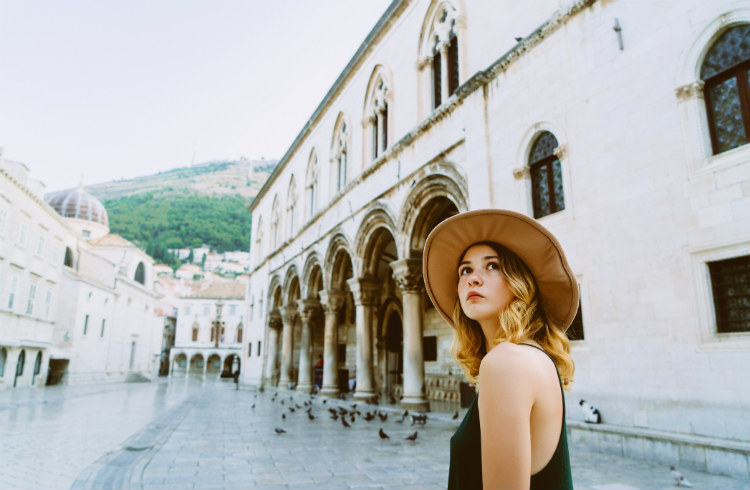
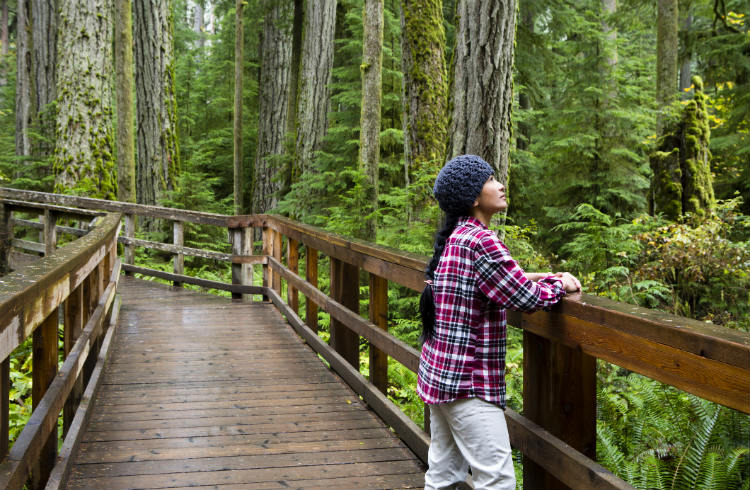
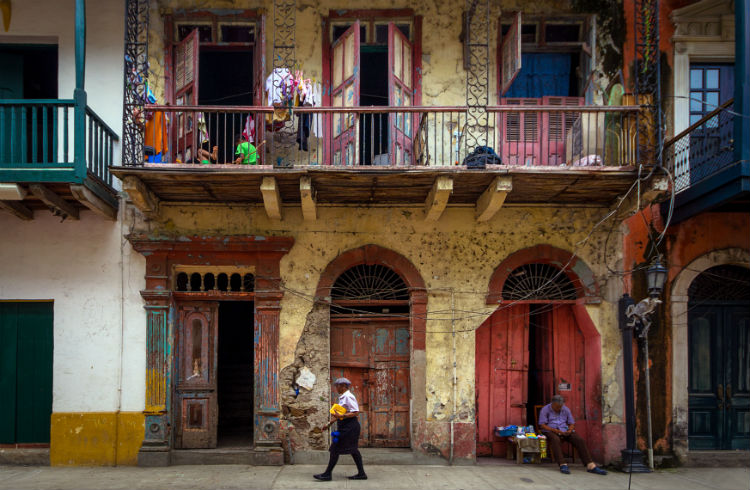
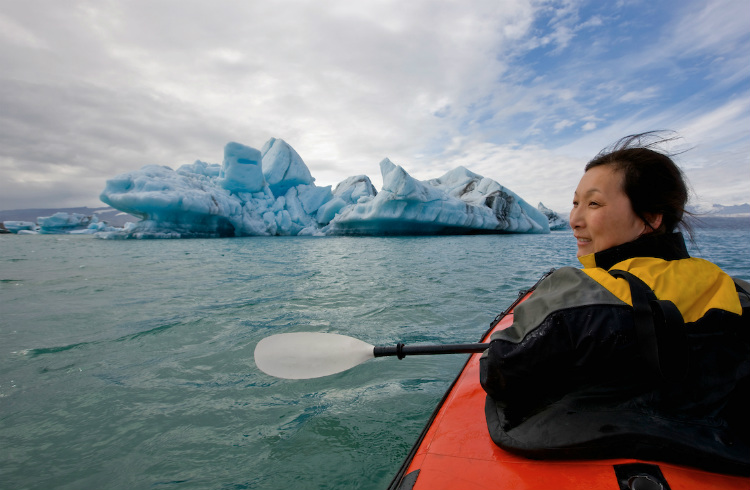
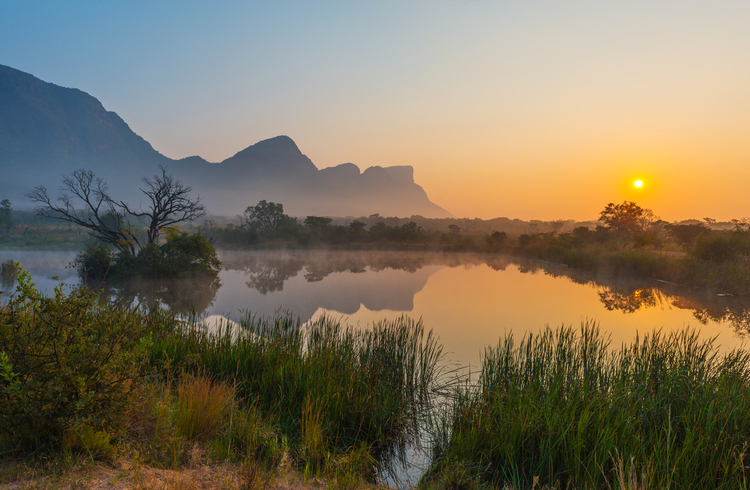
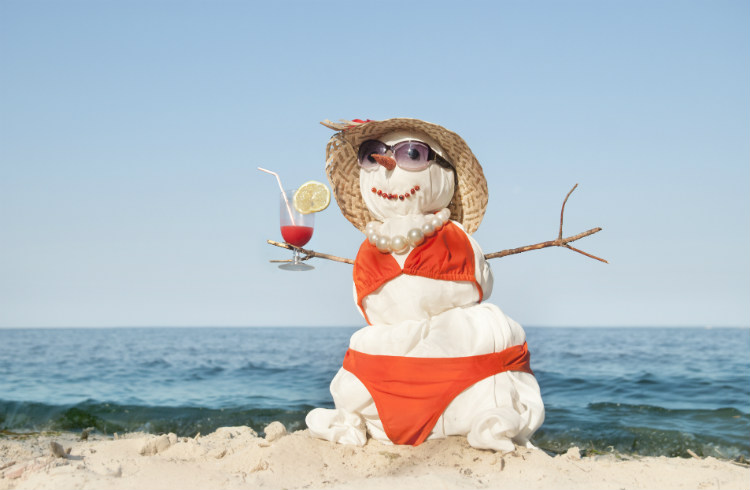
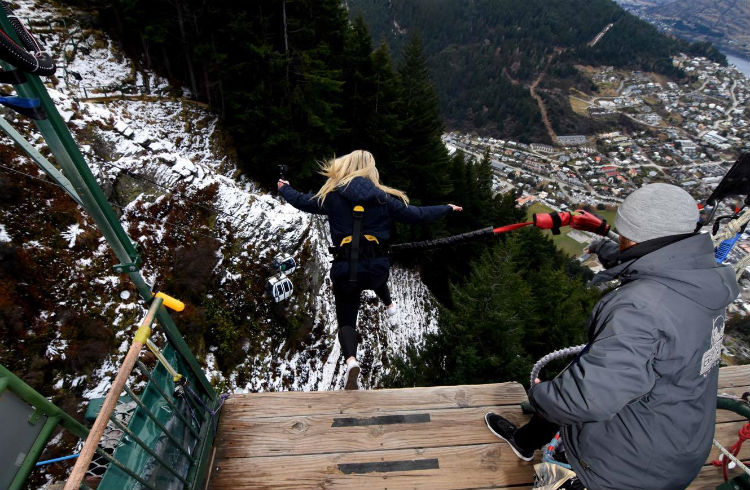
No Comments